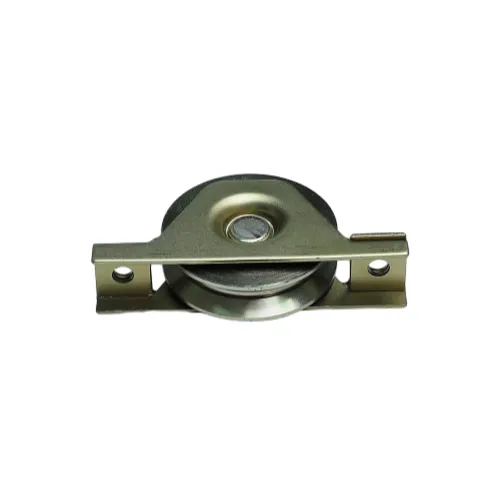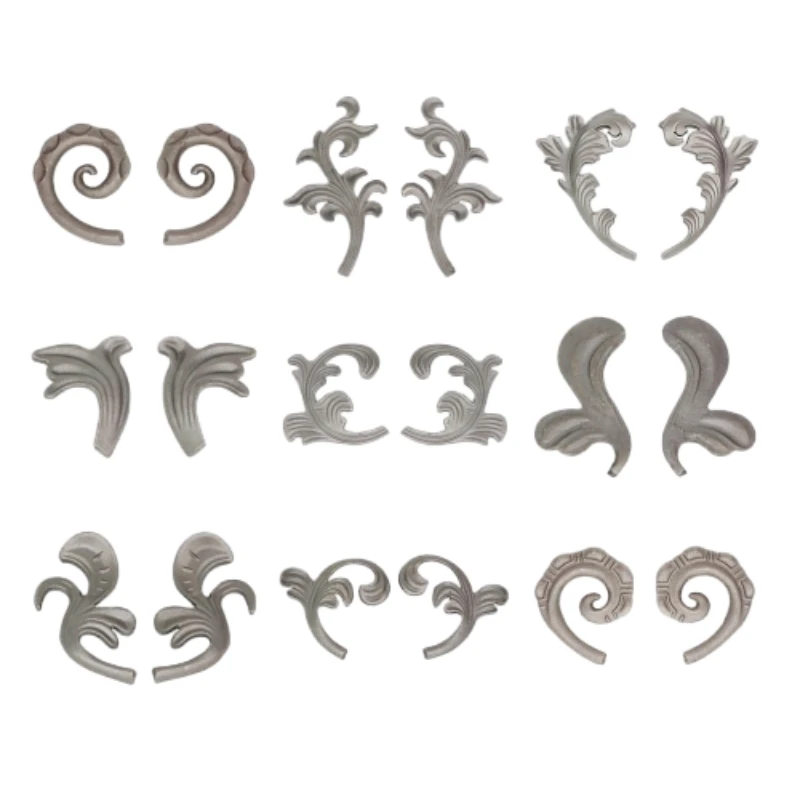
Jan . 25, 2025 21:42
Back to list
steel pulley supplier
Choosing the right steel pulley supplier is vital for businesses that depend on the efficient operation of their machinery. In industries where the reliability and performance of equipment can make or break operations, having durable and high-quality steel pulleys is non-negotiable. This article aims to offer insights into selecting a steel pulley supplier that meets the highest standards of quality and reliability, essential for maintaining smooth operation and longevity in mechanical systems.
Trustworthiness encompasses the supplier’s ability to consistently deliver quality products on time and offer transparent business practices. Trust is built over consistent deliveries, a fair pricing model, and exceptional customer service. Vendors who provide detailed product descriptions, usage guides, care and maintenance tips, and warranty information exhibit transparency. Cross-reference their reviews, check for any complaints regarding product longevity or hidden costs, and assess their ability to provide promptly after-sales services. Trustworthy suppliers are flexible and responsive to client’s needs, suggesting that investing in their products is a dependable choice for maintaining seamless operations. An ideal steel pulley supplier is one that not only provides high-quality products but also acts as a partner to your business by offering insights and solutions that enhance operational efficiency. Their dedication to continual improvement and client satisfaction ensures that they don’t just supply pulleys but solutions tailored to your needs. As a decision-maker, your focus should be on building a relationship with a supplier who values not only the immediate transaction but also the long-term success of your business. In essence, choosing the right steel pulley supplier requires a blend of experience, expertise, authoritativeness, and trustworthiness. Such suppliers play a pivotal role in ensuring that the machinery vital to your operations runs smoothly, efficiently, and reliably. Their contributions go beyond just providing components; they enhance the overall value chain, ensuring your operations remain robust in an increasingly competitive market. As you seek out suppliers, place emphasis on these characteristics, ensuring your choice leads to reduced downtime, increased productivity, and solid returns on your investment.


Trustworthiness encompasses the supplier’s ability to consistently deliver quality products on time and offer transparent business practices. Trust is built over consistent deliveries, a fair pricing model, and exceptional customer service. Vendors who provide detailed product descriptions, usage guides, care and maintenance tips, and warranty information exhibit transparency. Cross-reference their reviews, check for any complaints regarding product longevity or hidden costs, and assess their ability to provide promptly after-sales services. Trustworthy suppliers are flexible and responsive to client’s needs, suggesting that investing in their products is a dependable choice for maintaining seamless operations. An ideal steel pulley supplier is one that not only provides high-quality products but also acts as a partner to your business by offering insights and solutions that enhance operational efficiency. Their dedication to continual improvement and client satisfaction ensures that they don’t just supply pulleys but solutions tailored to your needs. As a decision-maker, your focus should be on building a relationship with a supplier who values not only the immediate transaction but also the long-term success of your business. In essence, choosing the right steel pulley supplier requires a blend of experience, expertise, authoritativeness, and trustworthiness. Such suppliers play a pivotal role in ensuring that the machinery vital to your operations runs smoothly, efficiently, and reliably. Their contributions go beyond just providing components; they enhance the overall value chain, ensuring your operations remain robust in an increasingly competitive market. As you seek out suppliers, place emphasis on these characteristics, ensuring your choice leads to reduced downtime, increased productivity, and solid returns on your investment.
Prev:
Latest news
-
Unique Design Ideas for Wrought Iron Wall DecorNewsJul.21,2025
-
Stainless Steel Pulley for Marine ApplicationsNewsJul.21,2025
-
Safety Features in Industrial Track PulleyNewsJul.21,2025
-
Precision Tolerances for 2 Inch U Groove WheelsNewsJul.21,2025
-
Iron Fence Spears Corrosion Protection MethodsNewsJul.21,2025
-
Iron Decorative Panels for Balcony ScreensNewsJul.21,2025
-
Industrial Applications Requiring Heavy Duty PulleyNewsJul.21,2025












